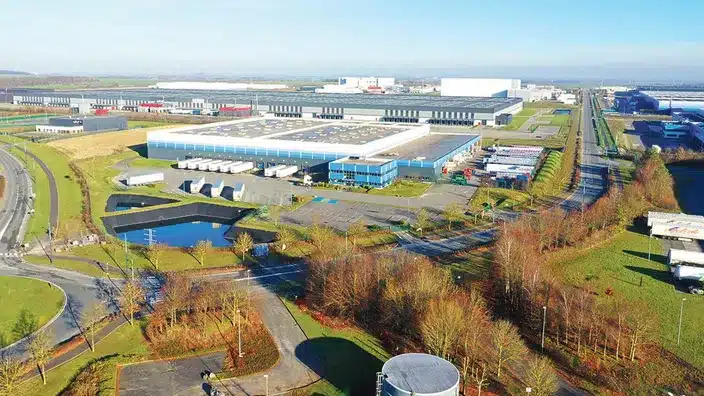Start-up Battri has raised €10 million to launch its first site in 2024 in Hauts-de-France.
As its name suggests, Battri will operate in the field of batteries, and more specifically battery recycling. This start-up will quickly become a major player in France, with its first plant due to be operational before the end of the year.
This is a major challenge in the context of the rapid development of electric vehicles in Europe. To guarantee the sovereignty of the Old Continent, batteries need to be produced. Announcements of giant factories have multiplied in recent years, particularly in France. But they will also have to be recycled. For obvious environmental reasons first of all. But also for economic reasons: batteries are composed of critical metals (nickel, cobalt, lithium…) that need to be kept in Europe and reused to produce new batteries if the Old Continent wants to be truly independent at industrial level. All the more reason to get involved.
Maxime Trèves is well placed to observe this movement. He worked for several years in the automotive industry, in China, and in mobility, at Uber in Europe. Then he joined the Trèves family group, founded by one of his grandfathers in 1836, an automotive equipment manufacturer specialising in acoustics with sales of nearly €600 million, for which he worked between 2016 and 2022. During the six years I spent with the Trèves group, I watched the electrification of automotive platforms gain momentum,” explains Maxime Trèves to Le Figaro. Announcements of the creation of battery gigafactories multiplied in France and Europe. I realised that the recycling of these batteries was going to be a very important issue”. In 2022, seized by the entrepreneurial spirit, he left Trier and set up a battery recycling start-up called Battri.
Earlier this week, the company announced that it had raised €10 million, mainly from the Moroccan mining group Managem, to enable it to set up its first plant. Things could go very quickly. We have secured the use of a 15,000 m2 building, which already has a number of operating permits,” explains Maxime Trèves, Battri’s Managing Director. It’s located at Saint-Laurent de Blagny, near Arras, in the Hauts-de-France battery valley. We now need to be classified as a ‘Seveso high threshold’ plant so that we can process all types of lithium battery. Our application will be submitted before the end of the month, and we’re aiming to obtain the certification within the next nine months.
Large capacities
Battery recycling is a complex process. This young company has developed its own process. It is not interested in the whole cycle, but only in the “pre-treatment” phase. This involves discharging the batteries, dismantling them, recovering the plastics, copper and other solvents, and crushing the rest to produce a “black mass”. This contains the graphite, lithium, cobalt and nickel, which then need to be separated. For this operation, the technology is quite different, and the investment involved runs into hundreds of millions of euros. Battri does not intend to launch into this activity, but the company is capable of making a global offer for its customers. We have signed an agreement with Managem, which has black mass processing capacity in Morocco,” explains Maxime Trèves. This non-exclusive agreement will enable us to offer battery manufacturers a closed-loop solution, with the material being returned to Europe.
The Battri plant will have significant battery recycling processing capacity. It will start operating immediately, as the machines are available. “We’re aiming for a production capacity of 15,000 tonnes in the first year, rising to 30,000 over time,” explains Maxime Trèves. The CEO estimates that Battri will then be “one of the biggest battery recyclers in France”. In fact, once its plant is up and running, the start-up should be the leading player in lithium-ion battery recycling in France. Veolia does operate a site, but it does not have the same capacity, although the company intends to increase it rapidly. And Suez has a very ambitious project, in collaboration with Eramet, which will be launched once the Battri plant is up and running.
Battery production capacity is going to grow very fast. And production scraps from new units alone will represent considerable volumes. “The 100 to 200 GW of production announced and planned today in France will no doubt represent 75,000 tonnes of waste every year,” Maxime Trèves points out. The potential of the battery recycling market is therefore considerable.
Published on 12 January 2024, Le Figaro
Emmanuel Egloff


